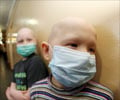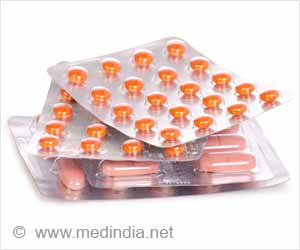A single dose of swine flu vaccine produces a robust immune response in pregnant women, one of the groups at high risk of dying from (A)H1N1 influenza, but young children need two
A single dose of swine flu vaccine produces a robust immune response in pregnant women, one of the groups at high risk of dying from (A)H1N1 influenza, but young children need two shots, US clinical trials have shown.
"The immune responses seen in healthy pregnant women are comparable to those seen in healthy adults at the same time point after a single vaccination, and the vaccine has been well tolerated," Anthony Fauci, director of the National Institute of Allergy and Infectious Diseases, said in a statement.No safety issues were reported during the trials, which began on September 9 and tested 120 women, all in the second or third trimester of pregnancy.
Twenty-one days after they were given the swine flu vaccine, 92 percent of pregnant women who received a single 15-microgram dose and 96 percent of expectant mothers who were given one, 30-microgram dose showed a robust immune response, showed the initial results of the trials, which are still ongoing.
The findings of the trials back up recommendations made last week by the World Health Organization (WHO), that "adults -- including pregnant women -- and adolescents, beginning at 10 years old" be given a single swine flu shot.
Separate tests conducted in the United States have shown that children aged six months to 35 months and three to nine years should have two doses of the H1N1 vaccination, Fauci told reporters Monday.
"Those younger groups didn't have a good immune response eight to 10 days after receiving the first dose, and 21 days after that first dose, their response was still suboptimal -- 25 percent for the very young group and 55 percent for the intermediary group," Fauci told reporters.
Advertisement
The WHO has urged national authorities that have made children a priority for early vaccination to administer "one dose of vaccine to as many children as possible" while waiting for the results of studies to determine what the optimal dosage is for young kids.
Advertisement
Up to 10 percent of swine flu patients require hospitalization, and up to a quarter of those have to be admitted to an intensive care unit, said the WHO.
"From seven-10 percent of all hospitalized patients are pregnant women in their second or third trimester of pregnancy. Pregnant women are 10 times more likely to need care in an intensive care unit when compared with the general population," the WHO said.
Since the outbreak of the new strain of H1N1 flu began in April, at least 100 pregnant women have been hospitalized in intensive care units in the United States and at least 28 expectant mothers have died of pandemic swine flu, according to the US Centers for Disease Control and Prevention.
Pregnant women and mothers with young children have been turned away from flu vaccination clinics organized by state and county health authorities as vaccine supply has been far outstripped by demand.
Expectant mothers have to have the injectable form of the swine flu vaccine, which is made with killed H1N1 virus, and not the nasal spray, which is made with live, greatly weakened virus and is not advised for pregnant women, children under the age of two and people with chronic health conditions such as asthma.
The vaccine tested on the pregnant women in the United States did not contain the preservative thimerosal, which contains mercury, or an immune-boosting substance known as an adjuvant.
Source-AFP
SRM















